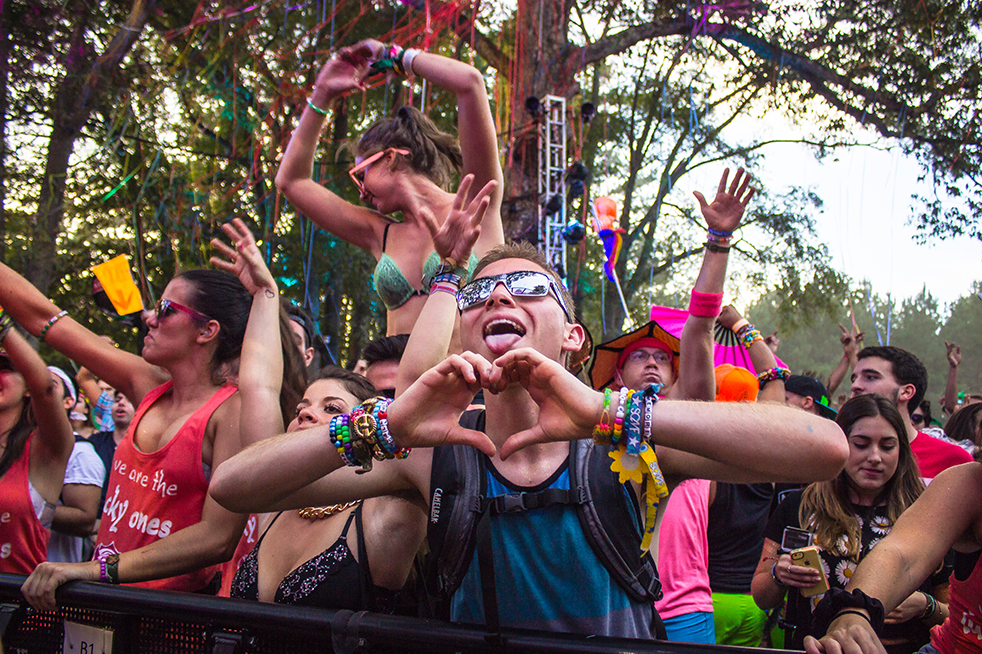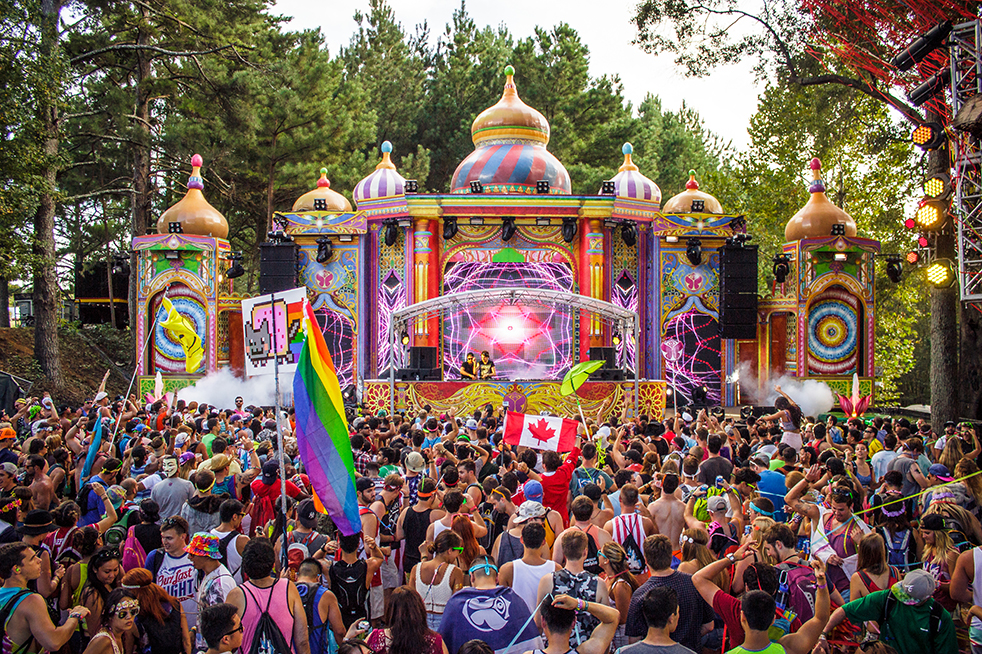“Yesterday is history, today is a gift, tomorrow is a mystery….”
This selection of words from an old adage (often credited to Alice Morse Earle) has been the slogan of ID&T’s world-renowned Tomorrowland festival for years, and with it comes great weight and earnest meaning.
It capitalizes on the fragility of the world we live in, stresses the importance of life and suggests a lifestyle of carefree love and enthusiasm. Since the festivals beginning, this slogan has been one of several driving forces behind the world of dance music and the melting-pot culture that makes it up.
The original event was birthed outside the small town of Boom, Belgium, in 2005. Every July, tens of thousands of people from around the world come together to celebrate not only the best in modern electronic dance music, but the beauty of the world’s people and to revel in the unanimous harmony built around mutual love for music.
Whether it was because of a legitimate desire to spread the influence of the original festival, or to capitalize on a growing American market, ID&T decided to throw a spin-off version here in the states, and so, in 2013, TomorrowWorld was born
TomorrowWorld’s inaugural year ended as a massive success. 120,000 people attended over three days. 749 annual full time jobs were created, and the monetary impact on the Atlanta area netted the city a lovely $70 million purse (roughly the same as the NCAA Final Four tournament).
Reviews of the event revealed what seemed to be a faultless experience.
With this in mind TomorrowWorld 2014 had a lot to live up to. Everything including the stage production, the booked acts, the food, the immersive decorations and the unique “Dreamville” camping experience was held in the highest regard, so there was no room for mistakes.
Did this year’s installment live up to the hype? In a number of aspects it met the expectations of many, but in a strange way this year was a bit of a letdown.
From the perspective of a first-timer, there’s quite a bit to be impressed with; walking around the expansive festival ground, nestled in the sprawling 8,000 acres of Chattahoochee Hills, was an absolute joy.
Seven stages dotted the fields with just the right amount of space between them, sound-bleeding only occurred when walking from place to place.
Main-stage was a monumentally proportioned volcano with a vast array of flame and fog outlets and strobes galore.
It must be noted that this was a reused or nearly identical copy Tomorrowland’s 2013 main-stage (imagine entering the science fair one year with one half decent project and receiving some praise and reentering it the following year expecting people to be more blown away).
The true spirit of the festival was found in the smallest stages.
The Grand Theater was situated on the edge of the grounds and jutting into the forest. The fans here were small in number (no more than 100 at a time) but great in passion. While other stages had people shoving and complaining for space, Grand Theater observers were forming dance circles, sharing water and food, and swapping stories.

Traversing between stages also exposed people to a wide variety of food from around the world, with the Belgian Beer Cafe standing as the largest (understandably so).
To increase the immersive of the experience there is no cash used at the festival, instead people debited money onto their RFID bracelets which were used to make any and all purchases.
If it was anyone’s first time at a festival, or just their first TomorrowWorld, all of these aspects surely created a memorable weekend.
For those of us who can claim the title of festival veteran, there was a lot to look at but not a lot to gawk at. Most artists played the same tracks they’ve played all festival season, and light shows and pyrotechnics failed to push any limits or compliment performances in any notable fashion.
So if everything was the same-old same-old, why go? Go because of the people.
The 21+ restrictions left the crowd essentially void of immaturity and inexperience (stress the ‘essentially’); getting ready for the festival, it was clear people were going more for each other than the nearly 300 listed artists.
Sourced from over 75 countries, the daily populous clearly felt a strong sense of community and duty to ensuring everyone had a good time. Yes the phrase is abused, even bastardized, but PLUR (Peace Love Unity Respect) was a legitimate mind-set maintained by many.
Despite some aggression in the thick of crowds, the ‘people of tomorrow’ developed a collective identity and temporary nationalistic fervor; new friends were being made left and right. Cliques were nearly non-existent, and race or ethnicity was an absolute non-issue (something particularly important, considering the world view of the South and its history).
This remained generally true in Dreamville, which was arguably – and ironically – the biggest problem this year.
Dreamville, the legendary camping experience that TomorrowWorld uses to set itself apart from rival fests like EDCLV, was packed to excess, and rumors quickly spread that it was oversold by an jaw-dropping 12,000 people. Love or no love, that is a little too close for comfort.
At the end of the day, or technically the weekend, the success of the festival hinges on each person’s understanding of it and their different goals.
Those going for mind blowing revolutionary performances may be disappointed. Those going for incredible stage productions might even leave a little unsatisfied.
The people who will come away from this feeling the most content and who will rave about this for months to come, are the people who came with a few friends and left with many.
The energy emitted from the masses here was unlike any other and writing about it will never do this vibe justice.
TomorrowWorld 2013 was one for the history books. TomorrowWorld 2014 offered the gift of community. TomorrowWorld 2015 though, well that is one mystery well worth waiting another year for.
